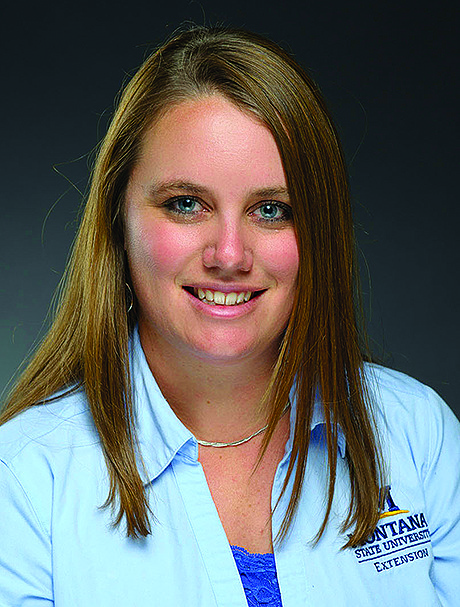Example Article for Broadwater County Extension Agent
Human Biosolids: Are They Safe For The Garden?
 | Author:
Allison Kosto, MSU Broadwater County Extension Agent
MSU Broadwater County Extension Agent |
Human Biosolids: Are They Safe for the Garden?
Allison Kosto
MSU Broadwater County Extension Agent
Most people don’t think twice about using livestock manure or kitchen waste on the garden, but how do you feel about human waste on the garden?! Another name for processed human waste is biosolids. Biosolids recycle organic material from wastewater treatment plants for fertilizer. It’s a decision that can cause some people to pause or question the decision before acting. Is there anything to be concerned about?!
First, let’s understand biosolids a little more. Biosolids are a byproduct of the wastewater treatment process. During this process, solid particles in the sewage become separated from the liquid. The liquid continues through clean water treatment. The solids then settle also getting treated to further breakdown the organic matter and destroy harmful microorganisms. The resulting product, called biosolids, is a nutrient-rich material that can be used as a fertilizer or soil amendment.
Biosolids are heavily regulated by the Environmental Protection Agency (EPA) through the Federal Clean Water Act. They must meet Class A standards to be used for home and garden use. Class A is the highest standard of pathogen removal and includes a treatment process to reduce pathogens to the lowest level. This process is monitored and all biosolids are tested to ensure they meet the strict requirements.
From this point, they can be sold as a byproduct. Biosolids have the potential for a great soil amendment because they have a high nutrient content and increase organic matter, much like livestock manure or waste. Most often, biosolids are mixed with other materials such as commercial compost that could include wood waste, yard debris or kitchen waste.
So what is the big deal? There are concerns that biosolids still contain toxic pollutants or chemicals that may have existed in the original sewage. Frequently cited concerns include heavy metals, household chemicals and pharmaceuticals. However, research has shown that biosolids contain low levels of trace metals, often even lower than the native soil. Household chemicals and pharmaceuticals have been found in biosolids but also at low levels. Additionally, these chemicals bind tightly to the soil or are easily broken down during composting so the likelihood of exposure through garden plants is minimal to none.
A larger concern is PFAS in biosolids. PFAS are also called forever chemicals, and they are found in water-resistant fabrics, carpets, industrial cleaning products, paint and fire-fighting foam. These chemicals break down very slowly and can have the potential to accumulate in the environment. Unfortunately, there are no EPA regulations for PFAS in biosolids. However, it is on their radar and in January 2025, the EPA issued a risk assessment of sewage sludge addressing the issue. In many cases, states and municipalities have taken this issue into their own hands and do their own testing and monitoring for PFAS.
How do you know if compost or other gardening products contain biosolids? According to the EPA federal rule, all commercial products are required to be labeled as biosolids. In the case of bulk materials, the company must provide written notice of biosolids to the buyer. This means that it is important to read the label and postings when purchasing compost or other gardening products. Most companies also have testing information available and are willing to share it.
In general, commercial products are rigorously tested to meet Class A standards and are safe to use on edible plants. However, if you are concerned and prefer not to take the risk, then you could choose just to use these products on non-edible plants like trees, shrubs, ornamentals, lawns, etc. and choose products without biosolids for edible plants.
One of the wonderful things about the home garden is that you have control over the products that you use. I encourage you to read the label and do your research before applying any product that you find questionable. Keep in mind that we are here to help at the Extension Office. If you have any questions about soil testing, fertilizers or soil amendments, visit us at 416 Broadway or contact us at 406-266-9242 or allison.kosto@montana.edu.